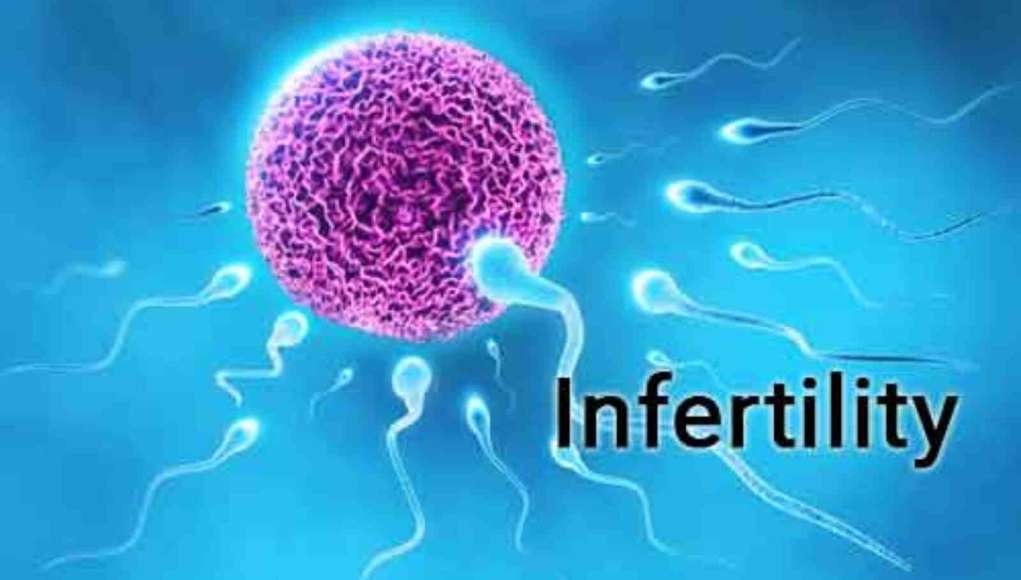The high rate of male infertility has become a big worry to many health practitioners.
Research findings show that more men are suffering from infertility than ever, a development described by a fertility scientist, Dr Shanna Swan, as a “global existential crisis.”
Swan warned, “The current state of reproductive affairs couldn’t continue much longer without threatening human survival.”
According to the US Population Reference Bureau’s 2021 Data Sheet, fertility is down in many nations, including low, middle and high-income countries.
The World Health Organization, WHO, has also recognised the decline in counts and quality of spermatozoa, which gave rise to its revision of the criteria for normal versus abnormal sperm counts to be used by andrology laboratories worldwide.
Normal sperm count ranges from 15 million sperm per millilitre to 200 million per millilitre. The WHO deems a rate below 15 million as “low.
Male fertility has been blamed for a whopping 60 per cent of infertility cases. Yet, conditions affecting male fertility are still generally underdiagnosed and undertreated.
Scientists said that infertility doesn’t just alter a man’s ability to make children; it also increases his mortality risk.
According to a Stanford University study, infertile men die younger than their infertile peers. Men with sperm concentration lower than 15 million per millilitre had a 50 per cent greater chance of being hospitalised for any medical reason at all, and poor fertility has been linked with higher rates of diabetes, heart disease and cancers.
Several causes and risk factors have been speculated and, in some instances, proven for male infertility and published in the medical literature.
Some of these include smoking, alcohol intake, drugs, obesity, past or present testicular infections, exposure to environmental toxins, exposure of the testicles to excessive heat, hormonal disorders, testicular trauma and ejaculatory/erectile disorders, among others.
Similarly, a study by a group of scientists from Nigerian universities who reviewed research on male infertility classified the causes and risk factors into physiological or biological, behavioural or lifestyle, environmental, and socio-demographic.
Despite the evidence of declining sperm counts worldwide and the increasing prevalence of male infertility, there has been limited public enlightenment about the potential causes and risk factors for male infertility.
Speaking to DAILY POST concerning the development, Dr Ajayi Abayomi, the Medical Director of Nordica Fertility Clinic, Abuja, provided more insight on male infertility.
Abayomi, a fertility specialist, discussed many issues, including concerns about declining male sperm count, diagnosis, risk factors, treatment, and IVF, among many others.
His response is reproduced below:
Declining sperm count and male infertility in Nigeria
”Well, I am aware of them and would say they are authentic. A study about two years ago looked at America and Europe and said that sperm count has reduced in the last forty years by 50%.
‘Also, we conducted research in our clinics; we have clinics in Lagos, Abuja and Asaba. We looked at ten (10) years apart the sperm parameters of men who presented in our clinics, and we saw a 30% decline in the sperm of men who showed up in our clinics in Nigeria.
‘Of course, we can not replace that with the community because it is just a clinic-based study; unfortunately, it also bears credence to what is reported in Europe and America.
It might be fair to say that sperm count globally might be reducing (I am choosing my word with much sense of responsibility), so much that some people said there is something called “spermageddon” because they believe sperm count might be reducing.
Causes of male infertility
One can look at so many factors, but probably one of the elephants in the room is lifestyle. We know that obesity and sperm count do not go together. We know a lot of young men are taking hard drugs these days for different reasons. Some use it for recreational purposes; some use it as an aphrodisiac and weight lifting; some even use these steroids to gain six packs. All these can affect sperm count.
The environment on its own is another factor. We are now talking about global warming. Some people might say the testes were placed outside by God for a reason for it to be cooled and for some of the things that might be warming the environment.
Even the WHO has been lowering the standard; what they considered normal 40 years ago is not what they are saying is normal now. So they have reduced it. That might also be one of the things to show us that sperm count might be going down.
So those are some of the issues, and I think there seems to be a correlation that sperm count might be going down.
Data on Infertility in Nigeria
There’s no data, but that’s one of the things that the Association of Fertility and Reproductive Health, AFRH, are trying to do. If you want actual figures, they must be community-based, not clinic-based.
Don’t forget that for one to come to the clinic already means he is sick. It might not be representative of what is happening in the community.
I know some people have done some community-based figures like I saw WHO saying that 1 out of 6 has infertility generally. However, some figures that some people did recently in Nigeria don’t correlate with that. The most important thing is not how common it is; we know it’s common, but what can we do to help people suffering from these conditions?
Has male infertility become a social and a medical issue?
Yes, it is not only a medical issue any more; it is also a social issue. This is because some of the interventions we need to take will not even be medical, like what we are doing now, educating the people.
One good example I would always cite is that a few years ago, when we saw a male belly, we did say it was evidence of good living, but now we know it is not. And All of us are now running to the gym to make sure we trim down because we suddenly know one might be predisposed to heart disease, hypertension and diabetes.
So the same way is what we need to do even with these young men. Sometimes I see a young person who is very slim, and he is taking vodka straight as if the thing is going out of fashion, and I look at him and shake my head and say, one of these days, this one is going to become my patient. But because they don’t know, it’s a social problem and probably needs social intervention.
Male infertility and diagnosis
Infertility is the inability of a couple to conceive or have a live baby after twelve months.
We have also done it in a way that it is now age-related. We say twelve months if the woman is below 35 and six months, especially if she is 37 and above.
So when the cause is either solely or being contributed to by the man, we call it male infertility. Or you can say infertility is the inability of a man to get his female partner pregnant.
If you look at how to make the diagnosis, unfortunately, most cases of male infertility don’t have symptoms for the man to have a clue that there’s a problem because he can do almost everything. He can have sex, and he can ejaculate most of the time, but the problem is that the soldiers in his brigades might not just be strong enough to be able to get the job done.
I hear many women say that they observed their husbands’ sperm. I don’t know what they want to observe there because the sperm cells are living organisms, and they move. Of course, they are visible to the ordinary eyes; but you must use the microscope. So the only test that can tell you about whether a man can impregnate his wife is seminal fluid analysis, which is the examination of the sperm cells under a microscope.
The only test is seminal fluid analysis, and in this, we look at parameters, we look at the volume of the sperm, we look at the count of the sperm, we look at the ability to move, we look at the morphology, and then we also look at the presence of white blood cells. The World Health Organisation, WHO, has fixed values for all this for us to know if the sperm count is normal or not normal.
Treating male infertility
The proven most effective method for treating male infertility is the procedure we call Intracytoplasmic Sperm Injection (ICSI), which involves injecting one sperm into one egg, and that is done under the microscope.
And then, when you fertilise the egg, you transfer the fertilised embryo into the woman. The transfer can be done on days two, three or five. The result of ICSI is as good as that of IVF.
There have been other spinoffs from the ICSI. Let us imagine this, you know, I said ICSI involves injecting one sperm into one egg. For you to be able to do this, you have to magnify the sperm cells to about 200mm so that you would be able to see the sperm cells swimming.
The best you can see is their swimming; sometimes, some don’t have a head. They only have tails so they can swim, and you might not know they have a head, but there is a hole in their head. You may not know, and you use them to fertilise the egg. And as they say, garbage in, garbage out. If you have used the wrong sperm to fertilise the egg, the embryo will not be okay. And so there might be a pregnancy problem, or you might have a miscarriage.
Now we started to magnify this sperm beyond 200mm to about 6000 -7000mm. And because of that, we could see the head very clearly; we could see the tail and everywhere.
This procedure is called Intracytoplasmic Morphologically Selected Sperm Injection, IMSSI. As the name suggests, “morphologically selected,” we look for the normally formed sperm to inject into the egg.
Then also, you know necessity is always the mother of invention. We started seeing that even with this when we first started doing IMSSI, we went “gaga,” thinking that we had found eureka, only for us to see later on that some of these patients that got pregnant still had a miscarriage because the sperm was not great.
So we started looking for other methods by which we can screen sperm because when you are doing ICSI, the results are based on the quality of the sperm and the quality of the egg. So you must have the method that can give you the best sperm no matter how bad the surroundings are.
And so we started doing Physiological Intracytoplasmic Sperm Injection, PICSI. In PICSI, we looked at why it is that when millions of sperm surround the egg, it’s one that can enter. We started looking at the quality of sperm that could enter. We saw that it has a specific enzyme richer than other sperms, and that’s why it was able to enter. So that’s why we called them Physiological ICSI. So we also started doing that.
The latest thing on male infertility treatment is DNA fragmentation. All this we do in Nigeria. We see that the only thing the sperm contributes to the equation is the DNA at the sperm head; they exchange DNA at fertilisation with the woman and the man, which come together to form a new life.
We discovered that if man’s DNA has been denatured or broken down more than normal, the embryo you might get might not be top quality and unable to form a baby. We have now devised a means to test the sperm to see how much denaturation has taken place to the DNA; that would be a direct reflection to see how it is for sperm to be able to fertilise the egg and develop from the stage of fertilisation to stage five of the trimester probably. And so that’s also one of the things that we are doing.
But one other technique that can be used to treat male infertility is to look at the genetic composition, for instance, when you examine to see if an embryo is viable.
Does genetics have anything to do with male infertility?
We believe that it does. There is infertility that you inherit. You can’t reverse it if you’re created in one way or another. However, some means are coming up now, for instance, gene editing. But it’s like you want to correct someone with sickle cell too. The gene editing would probably get to that, but it’s not reversible right now.
Rhesus incompatibility doesn’t lead to infertility in anybody. It can lead to you having miscarriages because the baby dies. Rhesus incompatibility only affects the baby.
Male infertility is poorly researched, and the outcome is not so great, but those are some of the things we are now working on and seeing better results.
Handling emotional and psychological aspects of infertility
I think many men are coming forward. Yes, not everyone, but many people are coming, and some reasons some men don’t come forward for treatment are guilt and shame.
They are shutting themselves out of reality, which doesn’t help anyone. For some of them, it’s like a defence mechanism. That’s not the way to handle any problem. You can not shut yourself out and get it solved. It is a denial phase.
I also think that Nigerians generally don’t make use of counselling. We don’t understand what counselling means. It’s church counselling that we take.
Sometimes I laugh at church counselling; it is just like you asking someone that has never been married about marriage. It’s not professional counselling most of the time, and that’s why some patients find it difficult to accept professional counselling because the counselling they used to do is the pastor telling them what to do.
In professional counselling, the counsellor is supposed to help you figure out how you will solve your problem. So people need to understand that if you have a problem and I tell you how I feel, you can solve it. I assume that we are reasoning the same, we have the same emotions and so on. It might not be totally true. A professional counsellor helps you take your feelings and competencies into cognisance and fashion out something that fits you.
I think men should start looking at that; there’s no macho when you have a problem. Even the bible said in this world, there would be tribulation, there would be trouble, be of good cheer. So there must always be trouble. It’s not by running away from it but by facing it head-on and getting the solution.
Does nutrition affect male sperm quality?
Yes, it does. Nutrition affects the quality of sperm because nutrition is part of the lifestyle.
We are made of what we eat ultimately. So there’s no doubt that nutrition has something to do with it. Nutrition also has to do with general health; if you eat things that will predispose you to diabetes, diabetes further even reduces your chances of having a baby and even a man being able to impregnate a woman.
To stay fertile as a man, you need to eat healthily and stay healthy. The rules are the same, avoid refined carbohydrates, take more plant-based protein, and avoid saturated fats and alcohol. That’s why I said about lifestyle choices because alcohol is not food. Alcohol is a big factor; cigarette smoking is a big factor; drugs are a big factor.
Mitigating the risks of IVF
The greatest mitigation to risks is training for service providers. The second one is that what used to be the greatest problem of IVF before is hyper-stimulation, which is an overreaction to drugs used in stimulating the eggs in women.
We know normally, a woman produces only one egg every month; sometimes, she produces two in a month. But in doing IVF, we cannot use one or two eggs, so we depend on drugs to stimulate her to produce more eggs. What we call that process is hyper-stimulation.
Some women overreact to this hyper-stimulation and produce too many eggs, which can lead to ovarian hyper-stimulation syndrome.
This was probably one of the most dreaded things in IVF, but I haven’t seen one in ten years because so many clinics now use some drug regimen that doesn’t predispose them to that kind of situation. After all, it’s better prevented than treated.
What is the success rate of IVF?
One of the things we say in IVF or assisted reproduction, or even reproduction itself, is that the success rate is individualised. The age of the woman is probably the most important factor. For instance, if two have low sperm count and the wife of one is 25 and the other 38, the chances of the former would be better than the latter.
The second factor will now be the age of the man. The first factor is the age of the woman. So when we talk about the success rate, you have to take it holistically, and it’s individualised. If you are less than 37, generally, the success rate is 35 to 40% in the neighbourhood.
People say it’s low, but I ask them what they compare it to because nature on its own delivers 20-25 every month at its very peak. So what we are even saying is that IvF gives you a better chance than nature.
The myth about male fertility
The myth that women are responsible for infertility is a big myth because about 60% of infertility is due to the man; it’s solely due to him, or he is contributing.
Men contribute about 60% of the causes of infertility. And that’s why we have been saying that if there’s infertility, both the man and the woman should be investigated.
Advice to men suffering from male fertility
There’s no alternative. One has to weigh his options; what do you gain by sitting down and not doing anything, and then your wife becomes older? We know that the success rate diminishes with age. So, such men should embrace technology and trust the process. But most importantly, they should choose their clinics wisely. Fertility treatment is not what you choose because of cost.
Regulating fertility practices in Nigeria
What is regulated in Nigeria? Nothing is regulated in Nigeria. We have a professional body, but it’s a voluntary association with no policing power.
I know that Lagos State is trying to make some laws. Once they can do that, I am sure other states will be able to follow.
They are still making moves trying to regulate it, but of course, everything depends on policing.
A word for the government
The government knows what to do. We have to spend money. Nigeria was part of the African Union that agreed they would be spending 15% of GDP on health, but we are spending less than 5%. So everything is affected.”










